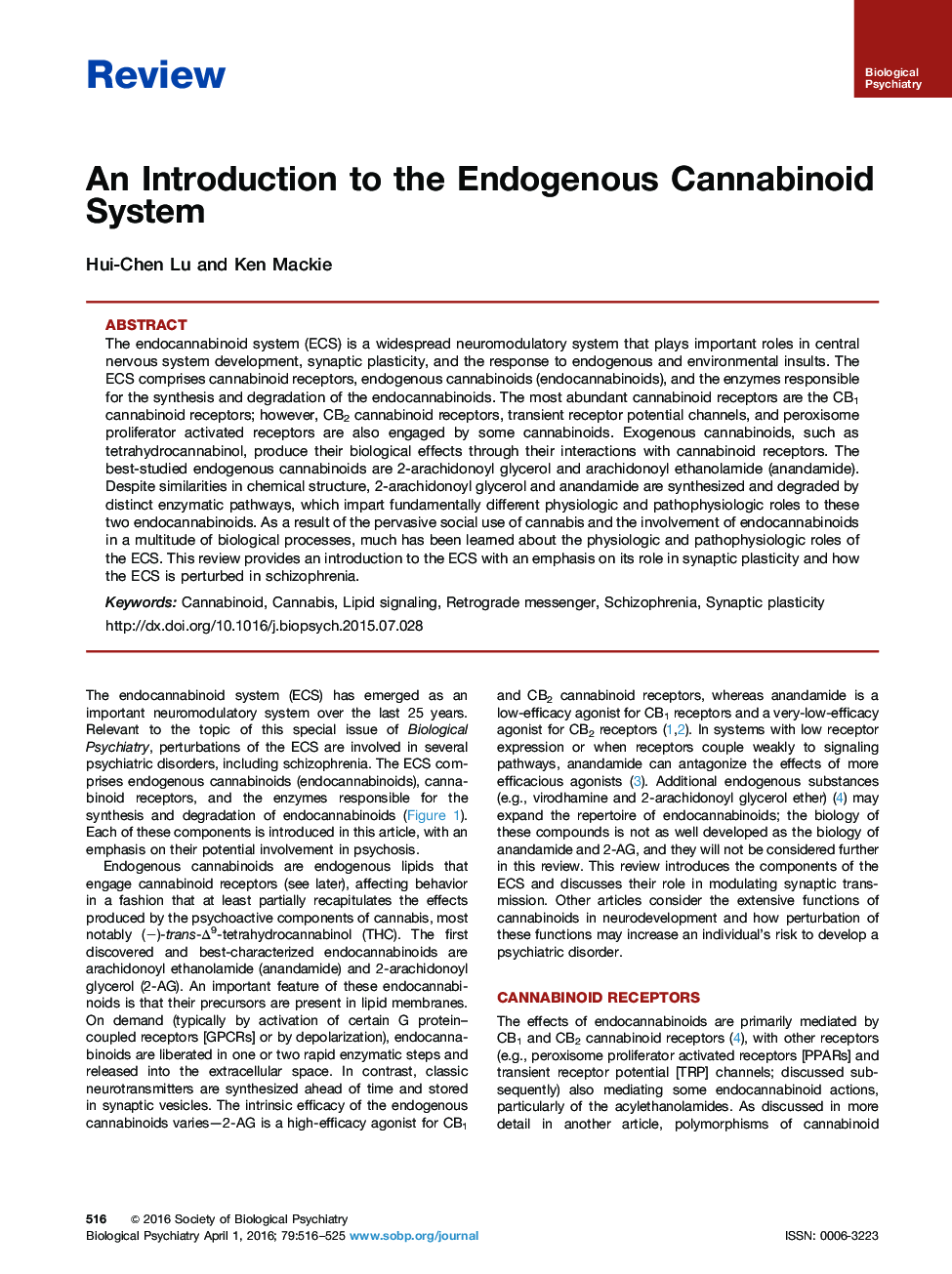| کد مقاله | کد نشریه | سال انتشار | مقاله انگلیسی | نسخه تمام متن |
|---|---|---|---|---|
| 6226528 | 1276387 | 2016 | 10 صفحه PDF | دانلود رایگان |
The endocannabinoid system (ECS) is a widespread neuromodulatory system that plays important roles in central nervous system development, synaptic plasticity, and the response to endogenous and environmental insults. The ECS comprises cannabinoid receptors, endogenous cannabinoids (endocannabinoids), and the enzymes responsible for the synthesis and degradation of the endocannabinoids. The most abundant cannabinoid receptors are the CB1 cannabinoid receptors; however, CB2 cannabinoid receptors, transient receptor potential channels, and peroxisome proliferator activated receptors are also engaged by some cannabinoids. Exogenous cannabinoids, such as tetrahydrocannabinol, produce their biological effects through their interactions with cannabinoid receptors. The best-studied endogenous cannabinoids are 2-arachidonoyl glycerol and arachidonoyl ethanolamide (anandamide). Despite similarities in chemical structure, 2-arachidonoyl glycerol and anandamide are synthesized and degraded by distinct enzymatic pathways, which impart fundamentally different physiologic and pathophysiologic roles to these two endocannabinoids. As a result of the pervasive social use of cannabis and the involvement of endocannabinoids in a multitude of biological processes, much has been learned about the physiologic and pathophysiologic roles of the ECS. This review provides an introduction to the ECS with an emphasis on its role in synaptic plasticity and how the ECS is perturbed in schizophrenia.
Journal: Biological Psychiatry - Volume 79, Issue 7, 1 April 2016, Pages 516-525
